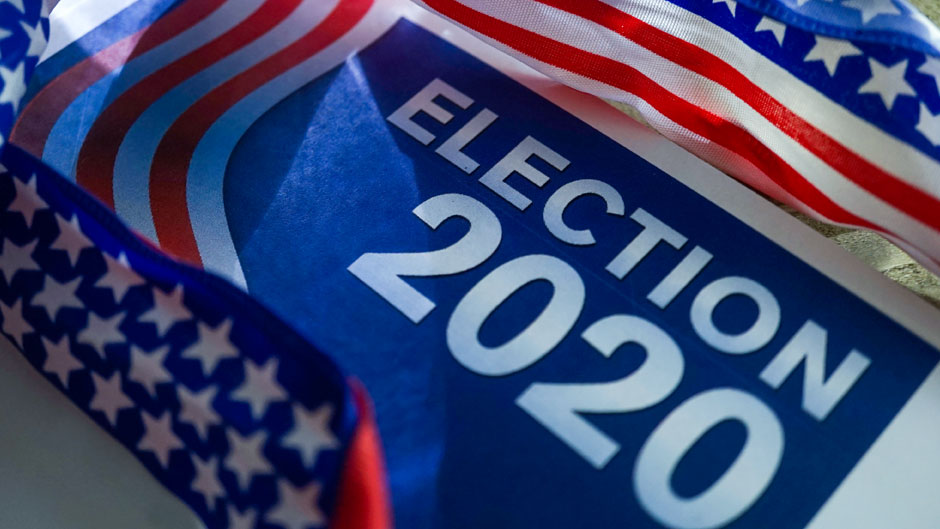The evening after a lengthy Election Day that produced no clear winner, the University of Miami’s Office of Multicultural Student Affairs (MSA) along with several other department collaborators hosted the virtual dialogue, “Brave Spaces: Processing the 2020 Election.”
During the discussion held on Wednesday, MSA, in collaboration with Get Out the Vote, LGBTQ Student Center, the Butler Center for Service and Leadership, Unity Roundtable, and the UM Counseling Center, brought University of Miami leaders, students, faculty, and staff together for a nonpartisan conversation. The purpose of the event was for attendees to process their thoughts, find support, and move forward together following the 2020 election season.
“We are here to be a resource, we are here to provide a space—whether it is comfortable or uncomfortable—we are not going to run away from an opportunity to engage you all as members of this community,” said Christopher Clarke, director of MSA, who opened the discussion by establishing guidelines for the event.
Kennedy Robinson, assistant director of MSA, encouraged and invited participants to occupy the “brave space” so long as they follow community agreements that included “amplifying voices which fight to be heard elsewhere.”
“We invite you to be a part of this tonight, engage with us, and go beyond your comfort zone with us,” said Robinson. “We hope that you all enjoy this conversation and we hope it leaves you with a better outlook going forward as we process the 2020 election.”
Guest panelists Andrew Wiemer, director of the Butler Center; Miles Pendleton, UM NAACP chapter president and undergraduate student; and Jordan Rhodes, Student Bar Association president and University student trustee; each took a moment to answer a discussion question related to civic engagement among youth voters and the action oriented steps needed to move forward following the 2020 election.
Wiemer addressed the impact youth participation had on the 2020 election. With close to 10 million 18- to 29-year-olds casting their vote, he praised the civic engagement of the University community; specifically, as Miami-Dade County reported higher-than-expected election day turnout as of Tuesday evening.
“Regardless of outcome, there’s still so much work ahead of us if we really do want to work toward a more equitable, fair, and just society. Social justice issues aren’t just going to go away because someone is or isn’t elected president,” said Rhodes, a J.D. candidate at the University of Miami School of Law. “We’re seeing such record turnout in voting, it’s so unprecedented, and so great. I hope that people can continue to stay interested, stay passionate, and stay involved at all levels.”
Pendleton, a Ronald A. Hammond scholar and a Foote Fellow Honors Program member who majors in criminology, sociology, political science, and Africana studies, encouraged his fellow students to use this moment as a momentum to continue the course.
“I think it’s really important for us to really realize this agency that we have and while voting is important, and promoting all of these things on social media is important,” he said, “it’s essential that we continue to push and claim that agency in this voting process, even before we’re able to vote to continue to promote the changes that we want to see in our state, local, and federal politics.”

